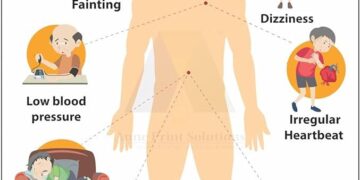The Federal Government is rethinking the January 2015 total take-off date of the automobile policy, sources close to both the Federal Ministry of Finance and the National Automotive Council (NAC) have revealed.
Shipping Position Daily confirmed last week that the recent position of Nigerian Association of Chambers of Commerce, Industry, Mines and Agriculture (NACCIMA) in which it called on the Federal Government to delay the take-off of the new Automotive Policy to March 2015, is a step to test the waters and a give the new policy implementation date a soft landing.
The Federal Government is rethinking the January 2015 total take-off date of the automobile policy, sources close to both the Federal Ministry of Finance and the National Automotive Council (NAC) have revealed.
Shipping Position Daily confirmed last week that the recent position of Nigerian Association of Chambers of Commerce, Industry, Mines and Agriculture (NACCIMA) in which it called on the Federal Government to delay the take-off of the new Automotive Policy to March 2015, is a step to test the waters and a give the new policy implementation date a soft landing.
The influential body had argued last week through its National President; Alhaji Badaru Abubakar that the shift has become necessary so as to enable stakeholders resolve the lingering controversies that have been generated by the policy and also reach a consensus on how to effectively implement the policy for the benefit of the sector’s investors and the economy at large.
The chambers said: “Having reviewed the lingering controversies between government and auto industry stakeholders on the implementation take-off date of the new auto policy in Nigeria, the chamber wishes to add their voice by expressing some concerns on the short moratorium period given on the effective take-off date of the policy.
“If implemented in July 2014, it will not only constrain them to operate optimally but also negatively affect sustainable transformation of the economy as it would lead to fall in demand of imported used vehicles.
But one of our sources at the NAC confirmed that, there are proposals before government that it should reconsider the January 2014 implementation date.
“We are aware of the pressure that government should extend to March 2015 and thereafter, extend by a further three months, but it’s not for us to say our position in public, we have advised appropriately”, he disclosed.
He however hinted that what the NACCIMA and others are pushing for is a tactical move to get an extension through the back door.
But, at the Federal Ministry of Finance, Shipping Position Daily got a clearer picture of what is likely to happen, come January 2015.
It was confirmed that, indeed there is a plan to shift the goal post by end of December 2014, and that what government is planning is to reduce the age limit on imported vehicles to five years so as to discourage importation of used vehicles and make Nigerians to prefer locally assembled vehicles.
“I know that by December, there will be an extension, but there will also be an announcement banning importation of used vehicles that are more than five years. With this, the locally assembled cars will be cheaper than the five year old imported from Europe”, our source who is a senior officer at the Ministry of Finance hinted, even though he cautioned that it is not yet official.
When asked if there is any friction between the National Automotive Council (which is under the Ministry of Trade and Investments) and the Finance Ministry, our source denied knowledge of any rift.
He said, NAC, which is the implementation agency for the auto policy has already declared that the policy has come to stay. He however added that, indications are that the basic ingredients are still missing.
He specifically stated that apart from the vehicles not yet available in commercial quantity, the auto purchase credit scheme which the government promised is still being worked on.
He explained further that, while it is true that the policy can not be scrapped, it can be extended at the discretion of the Minister of Finance.
Shipping Position Daily recalls that the Federal Government had in November 2013 increased the duty and levy payable on imported new and used cars from 20 per cent to 70 per cent. The new duty and levy were to take effect as from April 1, 2014.
Pressure on government necessitated a shift in implementation date January 2015.















Discussion about this post